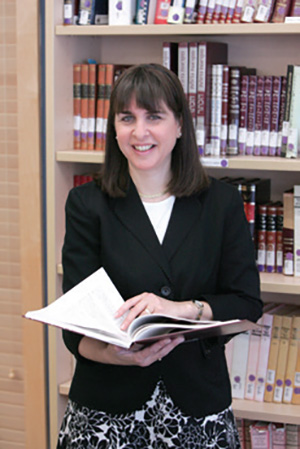
In our Monday parshanut shiur at Lamdeinu we are studying the story of the engagement of Yitzchak and Rivkah in Chapter 24 of Sefer Bereishit. Numerous commentators remark on the seeming repetitiveness of this chapter. Why must we hear in detail the prayer of the servant Eliezer when he embarks on his journey, followed by the actual unfolding of events at the well and at the home of Rivkah?
It occurs to me that the telling and repetition of stories is a hallmark of the Bible and a crucial element of the Jewish religion. It is our job to tell and retell the narratives of our Avot and Imahot, of yetziat Mitzrayim, of the formation of Am Yisrael and of its sojourn in Eretz Yisrael and the Diaspora. Stories and their retelling are the basis of our Torah readings, our haftarot, our Selichot, our kinnot and our tefillah. We ask God in our prayers to remember the stories of our ancestors so that we may learn from their challenges and benefit from the merits of their behavior.
In the month of Tishrei, stories are especially paramount in our minds because we are each called upon to tell our own personal stories. On the Yamim Noraim, each of us must engage in a cheshbon hanefesh; we review our own deeds of the past year and reflect on how we might do better in the future. Can we be stronger, more thoughtful, more engaged, more helpful, more understanding, more caring? How can we deepen our bein adam la-Hashem and enhance and improve our bein adam la-chaveiro?
It is a great gift of Judaism to have a special part of the year dedicated to a more concentrated cheshbon hanefesh, a season for telling ourselves our own stories. Rosh Hashanah inaugurates our Tishrei season with personal reflection, Yom Kippur is our climactic day of our atonement and, the rabbis tells us, Hoshanah Rabbah is when our personal destinies are sealed for the coming year. Finally, Tishrei closes with Simchat Torah and Shabbat Bereishit. We have reflected on our own stories and now we begin again to tell the stories of our heroic human ancestors and the birth of our nation.
Tishrei is a month of telling stories. As Tishrei opens, we reflect on our present lives. We hope, pray and resolve that our personal stories for next year will be better than those of this year. As Tishrei ends, we go back to the stories of our nation’s past—the stories of Sefer Bereishit—because reviewing the stories of our past empowers us to improve the stories of our future.
Shabbat shalom.
Dean Rachel Friedman is the founder of Lamdeinu, the center for Jewish learning in Teaneck.










